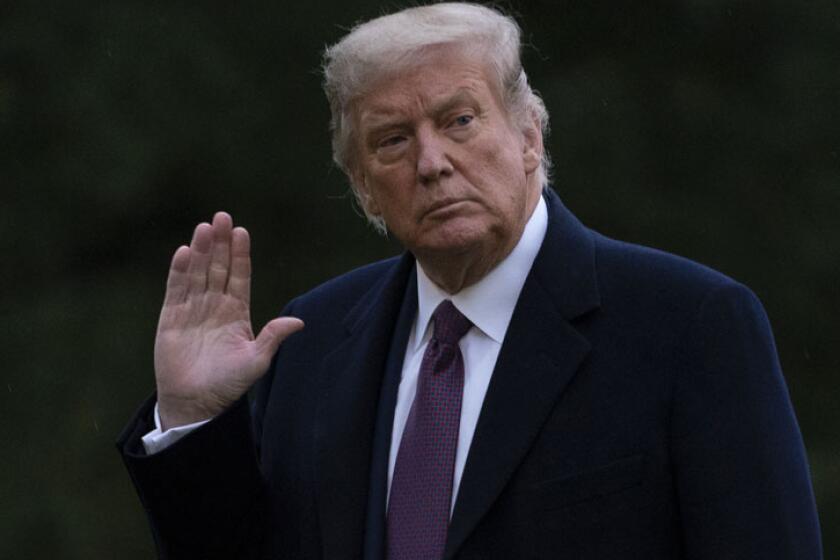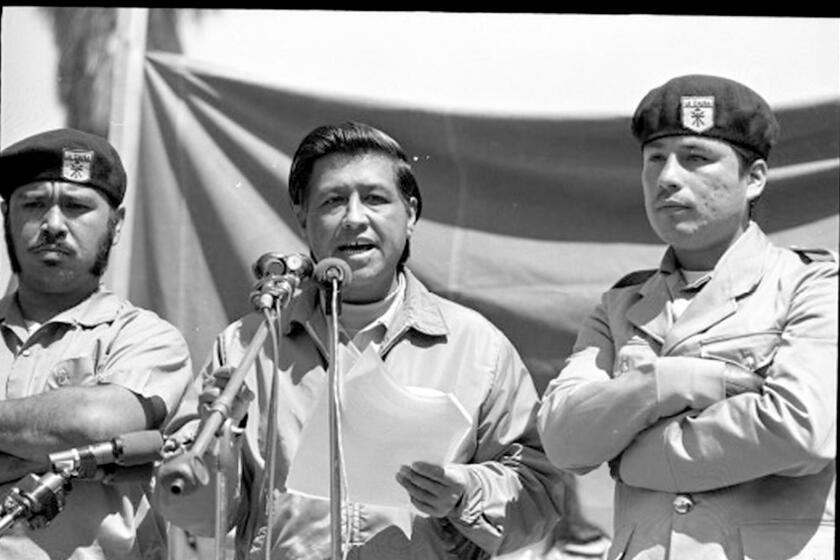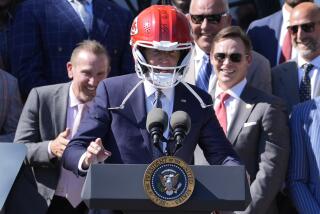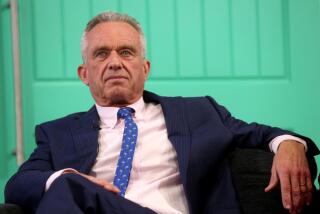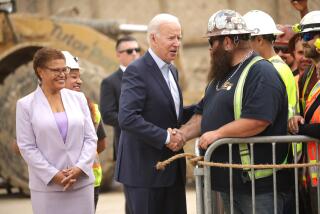Joe Biden has a bust of Cesar Chavez behind his desk in the Oval Office
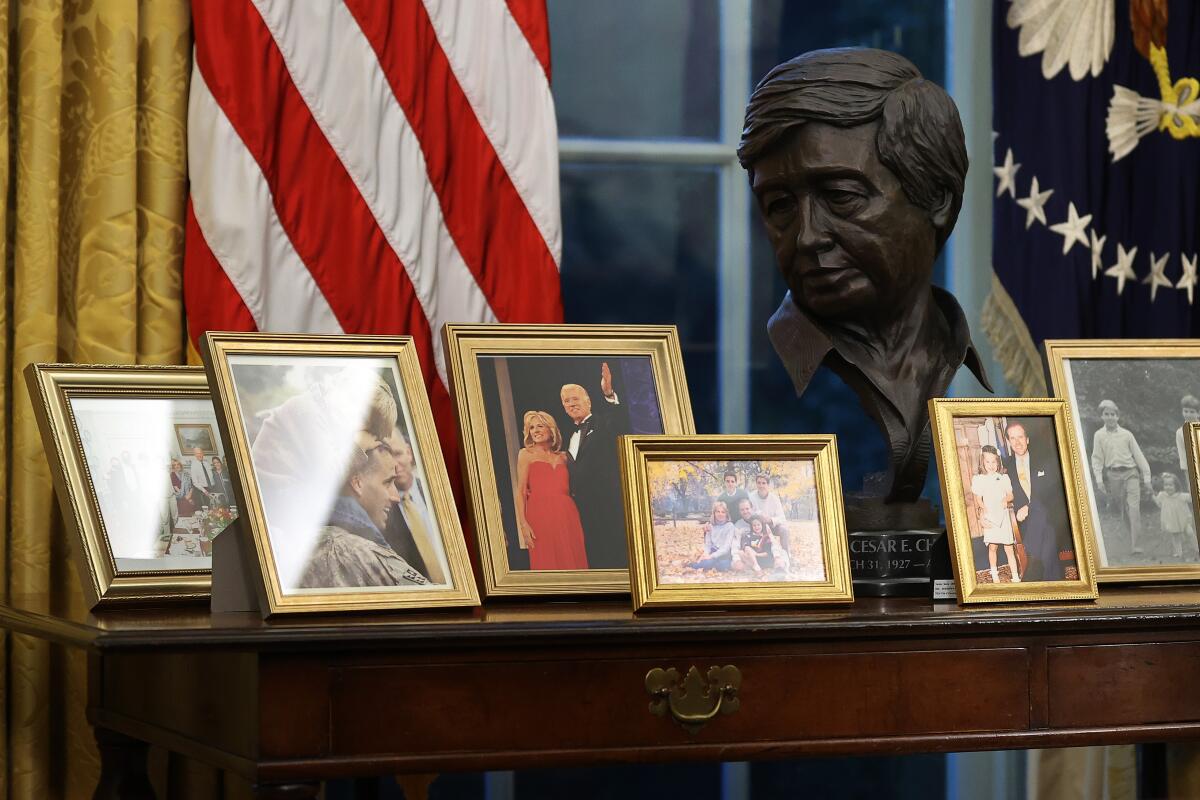
Here’s another sign of how different the vibe is in Washington tonight — a bust of a beloved Mexican American figure placed strategically close to the fresh work-from-home space of the new president.
President Biden’s transition team selected a bronze bust of iconic civil rights leader Cesar Chavez to place in the most visible position behind his Resolute Desk in the Oval Office, another sign of the tectonic shift occurring in the White House since the departure of Donald Trump.
By refusing to meet face to face with President-elect Joe Biden, Trump is attempting one last departing snub of Biden.
The 22-inch sculpture is by artist Paul A. Suarez and had been on display at the Visitor Center of the Cesar E. Chavez National Monument in Keene, Calif., in the Tehachapi mountains of Kern County. The Biden-Harris transition office requested the lending of the sculpture, the Chavez monument announced on Wednesday.
The LA Times reflects back on the life and legacy of beloved Mexican American figure Cesar Chavez.
The bust is placed amid Biden family photos, and should be in view for tens of millions of people each time Biden addresses the country from the center of power in the U.S. executive branch.
Paul F. Chavez, middle son of the activist and president of the Cesar Chavez Foundation, praised the move in a statement.
“Placing a bust of my father in the Oval Office symbolizes the hopeful new day that is dawning for our nation,” he said. “That isn’t just because it honors my dad, but more importantly because it represents faith and empowerment for an entire people on whose behalf he fought and sacrificed.”
Cesar Chavez and co-organizer Dolores Huerta founded the United Farm Workers, originating the term “Si se puede” (“Yes we can”) and paving the way for labor organizing for generations to come. Chavez died in 1993.
Cesar Chavez knew that he was making history Sept. 16, 1965, as he called on members of the National Farm Workers Assn. to take a strike vote.
More to Read
Get the L.A. Times Politics newsletter
Deeply reported insights into legislation, politics and policy from Sacramento, Washington and beyond. In your inbox three times per week.
You may occasionally receive promotional content from the Los Angeles Times.

